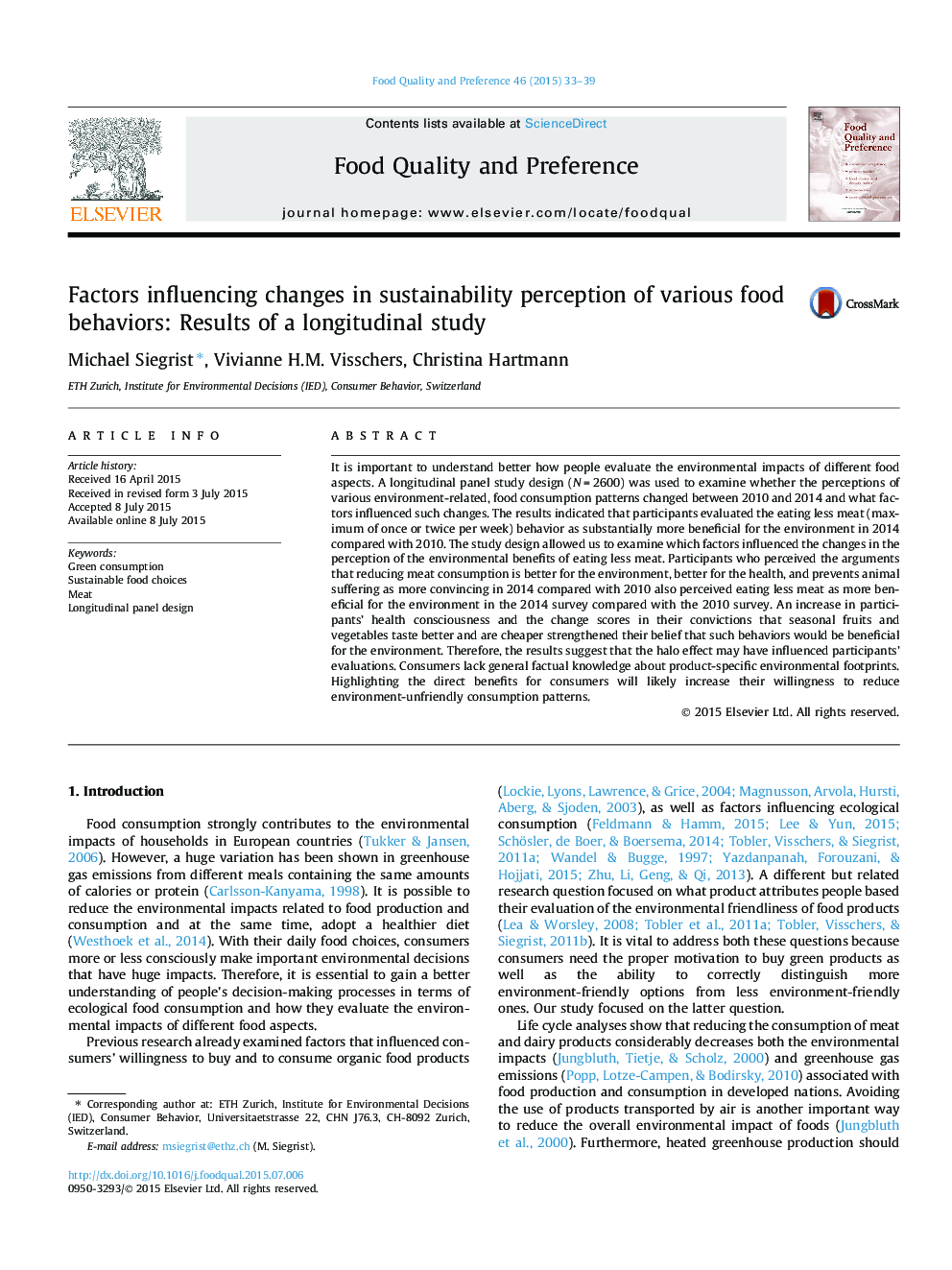| Article ID | Journal | Published Year | Pages | File Type |
|---|---|---|---|---|
| 4316947 | Food Quality and Preference | 2015 | 7 Pages |
•Changes in sustainability perception were examined in a longitudinal panel study.•The environmental impact of reducing meat consumption is still underestimated.•Factual knowledge about product-specific environmental footprints is missing.•Highlighting benefits for the consumer might increase green-shopping behavior.
It is important to understand better how people evaluate the environmental impacts of different food aspects. A longitudinal panel study design (N = 2600) was used to examine whether the perceptions of various environment-related, food consumption patterns changed between 2010 and 2014 and what factors influenced such changes. The results indicated that participants evaluated the eating less meat (maximum of once or twice per week) behavior as substantially more beneficial for the environment in 2014 compared with 2010. The study design allowed us to examine which factors influenced the changes in the perception of the environmental benefits of eating less meat. Participants who perceived the arguments that reducing meat consumption is better for the environment, better for the health, and prevents animal suffering as more convincing in 2014 compared with 2010 also perceived eating less meat as more beneficial for the environment in the 2014 survey compared with the 2010 survey. An increase in participants’ health consciousness and the change scores in their convictions that seasonal fruits and vegetables taste better and are cheaper strengthened their belief that such behaviors would be beneficial for the environment. Therefore, the results suggest that the halo effect may have influenced participants’ evaluations. Consumers lack general factual knowledge about product-specific environmental footprints. Highlighting the direct benefits for consumers will likely increase their willingness to reduce environment-unfriendly consumption patterns.
